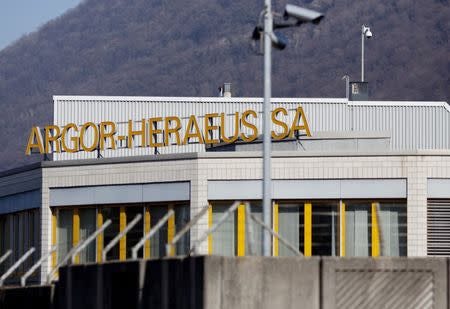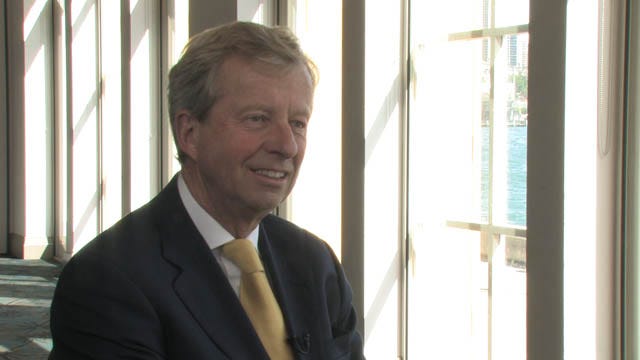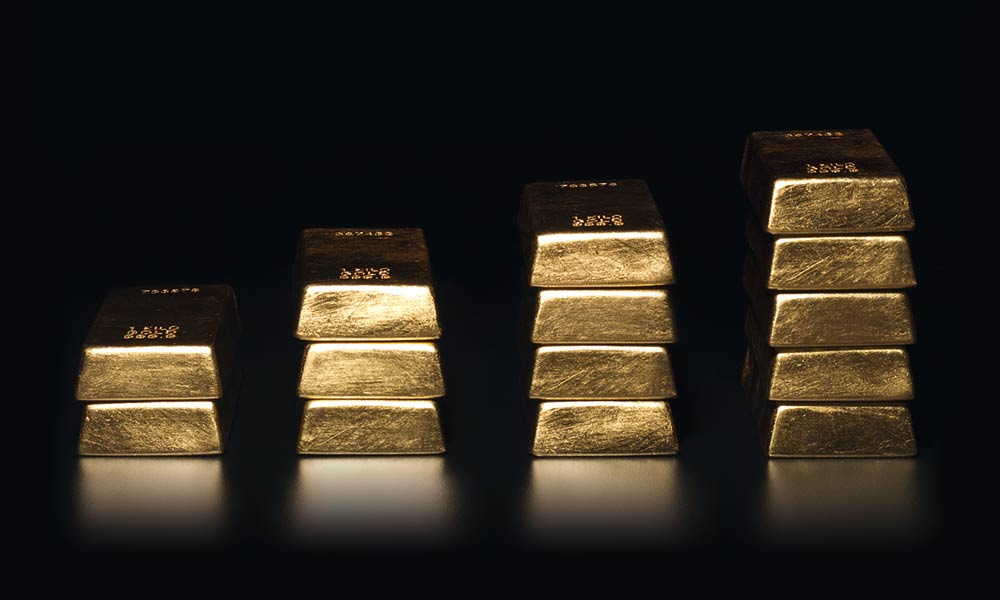Special Report: The Swiss Gold Industry
An "inside look" at the special role that Switzerland plays in the global gold market
Dear Insider,
Global markets are tumultuous.
Stocks go down, bonds go down - fear goes up.
Something else has been going up too - the price of gold.
The original “safe haven asset” has seen its value explode since trade uncertainty and US debt have stoked angst around the world.
The shiny yellow metal seems to offer an element of security in troubled times - much like Switzerland.
Interestingly enough - the business of gold has a special place in Swiss economy.
A very special place indeed…
Let’s dive in,
Ian
💡PS: Let me know what you like (or don’t) about this particular “deep-dive” episode. Just reply to this email. 🙏🏻
Feel free to connect on LinkedIn - or get more Swiss insights here.
🔢 By the numbers
What picture do the statistics give of the Swiss gold industry? Is it as big as some people think?
🟡 $109 billion
In 2023, Switzerland exported over $100 billion worth of gold. This made it the world’s largest exporter of the precious metal.
🟡 27%
Gold exports accounted for approximately 27% of all Swiss exports in 2024, making it the top export good - more than pharmaceuticals.
🟡 34’468 CHF / 56’217 CHF
As a major centre for gold refining, Switzerland imports low-purity gold (at an average price of over 34’000 CHF/kg) and exports highly-refined gold (with a value of 56’217 CHF/kg)
🏭 The refineries
When it comes to make fine gold - very fine gold - Switzerland is quite simply the place to be.
Switzerland refines approximately 50–70% of the world's gold annually, processing between 2,100 and 2,400 metric tons in recent years .
Major “hot spots”
Valcambi: Established in 1961 and located in Balerna, Valcambi is the world's largest precious metals refinery, processing over 2,000 tons of gold, silver, platinum, and palladium annually. Valcambi is a subsidiary of Rajesh Exports Limited, an Indian company.
PAMP (Produits Artistiques Métaux Précieux): Based in Castel San Pietro, it's a leading bullion brand. The refinery has an annual production capacity of over 400 tonnes of gold, 600 tonnes of silver, and 30 tonnes of platinum group metals. PAMP is committed to environmental sustainability, sourcing 100% renewable electricity and having installed solar panels covering 2,000 m², producing approximately 519.7 MWh annually. PAMP is part of the MKS PAMP Group, which includes MKS (Switzerland) SA, a Geneva-based precious metals trading company.
Metalor Technologies: Headquartered in Neuchâtel, Metalor was established in 1852. Since 2016, Metalor has been a subsidiary of Japan's Tanaka Kikinzoku Group
Argor-Heraeus: Situated in Mendrisio, Argor-Heraeus is also among the top global refiners. The refinery has an annual gold refining capacity of approximately 350–400 tonnes. Argor-Heraeus is one of only five refinery members of the London Bullion Market Association's (LBMA) Good Delivery referee panel, maintaining quality standards for refinery members worldwide.
🔁 The place to trade
As with other commodities (think Glencore, Trafigura, Kolmar), Switzerland stands as a major trading hub for commodities.
Gold is top of that list.
As the top importer and exporter of gold, Switzerland has strong trading ties to some of the world’s largest economies.
Who exactly?
The major destinations for Swiss gold exports (by percentage of total exports) are:
China: 29%
India: 15%
Turkey: 14%
Hong Kong: 8%
United Arab Emirates: 6%
And where does the gold come from?
In 2023, the United States remained the top source of gold imports to Switzerland. But this does not necessarily indicated that the USA mines so much raw gold.
Rather, there are other forces at work:
Differences in gold bar sizes between London (400-troy-ounce bars) and New York (1kg bars) necessitate recasting in Switzerland.
This, combined with price premiums on U.S. gold futures over London spot prices, created arbitrage opportunities that encouraged the movement of gold between the U.S. and Switzerland.
Trade of raw gold is reflected in the volume of trade with other nations high on the list of Swiss gold trading partners:
United Arab Emirates $9.7 billion
Uzbekistan $8.2 billion
Canada $5.9 billion
Australia $5.3 billion
Russia $3.9 billion
South Africa $3.8 billion
Kazakhstan $3.7 billion
🪙 The dealers
For a country centered around wealth management, it goes without saying that Switzerland has more than its fair share of advisors with a special focus on precious metal - including gold.
These names are known…by those who know…
Von Greyerz
At a $400’000 minimum investment, Von Greyerz is not a gold dealer made for the man on the street.
To access the firm’s mountain vault deep in the Swiss Alps, an initial ticket of $5 million is required.
The firm, founded in 2005 and formerly known as Matterhorn Asset Management, was originally set up to service the family funds of Ergon Von Greyerz.
Since that time it has expanded its service palette to include transport, storage, and advice for highly discerning clients, which hail from over 90 different countries.
Degussa Goldhandel
Founded in 2010, Degussa is wholly owned by one of Germany’s wealthiest families. It operates branches in Geneva and Zurich and employs more than 120 persons.
The company has a global footprint with operations across Europe, including in Munich, Frankfurt, London, and Madrid.
The firm is less focused on the UHNWI segment and caters very well to retail clients with an extensive online offering.
Degussa was the first Swiss gold dealer to accept cryptocurrency as payment for gold.
BFI Bullion
BFI Bullion is a part of BFI Capital, which has operations in wealth management, family office consulting as well as precious metals investments.
Founded in 2009, BFI Bullion offers both trading and storage services, with the later including fully segregated custody and a secure key box service.
BFI boasts clients from around 80 countries
Pro Aurum
The Kilchberg-headquartered company was founded in 2004 and does an estimated annual turnover in gold trading (besides other white metals) of about 50 tonnes.
Much like Degussa Goldhandel, Pro Aurum has a strong focus on online buying and selling of gold products.
Pro Aurum has a strong presence in Germany as well with headquarters in Munich and sales presence in Berlin, Bad Homburg, Dresden, Düsseldorf, Hamburg, and Stuttgart.
📈 Standardized
In an interesting side note - Switzerland maintained an official currency policy of a gold standard until only 25 years ago.
In 2000, a national referendum authorized the central bank to revert to a fiat currency system and Switzerland officially moved off the gold standard.
Legal requirements in place before the referendum stipulated that at least 40% of the currency’s backing must be in gold reserves.
Following the vote on 1 May 2000, the Swiss National Bank embarked on a gold selling spree, reducing its holdings to 1’290 tonnes (as of March 2025).
A 2014 referendum to require at least 20% backing by gold was defeated at the ballot box.







